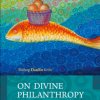Vladimir Pištalo graduated from the University of Belgrade Faculty of Law and earned his doctorate at the University of New Hampshire under the theme of the identity of numerous Serbian immigrants. He now works at Becker College in Brewster, Massachusetts where he teaches World and US history.
He published the following prose books:
Slikovnica (1981)
Noći (1986)
Manifesti (1986)
Kraj veka (1990)
A Novel: Corto Maltese (1987)
Short story books:
Vitraž u sećanju (1994)
Priče iz celog sveta (1997)
A biography of Alexander the Great (1999)
Novels:
Milenijum u Beogradu (2000)
O čudu (2002)
Tesla, portret medju maskama (Tesla, Portrait among Masks) (2008)
Venecija (Venice) (2011)
The French language translation of his novel Milenijum u Beogradu was a choice for the prestigious award Femina for the best translated novel in French.





